Leadership is a valuable and unique attribute that transforms a good employee into a great one. A leader should possess an unshakeable vision and the ability to transcend this into an actual reality. Beyond this, the best leaders in the world will inspire others to do the same.
To push the logistics industry forward, we need a united and future-looking outlook. Arguably, as one of the fastest-growing sectors affected by globalization and a string of technology advancements, it has become necessary for our innovators to be the driving force.
It’s high time that we leave behind the idea of dominant leadership paradigms. The traditional fixed leadership style that extracts obedience and conformity is no longer effective in the modern business environment, where employees are looking for more autonomy, creativity and flexibility in their work. Instead of making decisions on behalf of employees, leaders need to adopt a more enabling role that facilitates decision-making by involving team members in brainstorming sessions.
“The unique challenges of logistics and supply chain management make having the right leader a critical part of achieving results,” says Don Firth, president of JobsInLogistics.com Inc.
1. Kickstart Collaboration By Requesting Employees’ Input
Many companies today have become so large and complex that decision-making has become an arduous task, taking months or even years to go through several layers of approval. There are times when managers need to make important decisions quickly, but they find it difficult to achieve this without team members’ support and buy-in. Managers can overcome this kind of gridlock by making use of smart collaboration tools that can break down communication barriers between employees across different locations.
With the advent of social media platforms into mainstream business applications, people now have access to these collaborative tools wherever they are. Employees can start group discussions online and collectively decide on the best possible course of action, instead of waiting for opinions to trickle down through hierarchical levels.
2. Get Off The Sofa And Tap Into Millennial Expertise
Employees who are familiar with modern communication tools are more likely to embrace cutting-edge technologies in their workflows. This not only saves time but also helps businesses achieve greater efficiency because it accelerates decision making processes that are critical to the success of any business activity. For example, software vendors can now monitor customer feedback much better by deploying smart chatbots powered by artificial intelligence (AI). These bots help team members communicate faster and more empathetic with customers across different locations, without having to worry about linguistic barriers.
While companies find it easy to adopt such technologies, they often struggle to get their millennial workers onboard. So the first step that managers should take is to understand what employees want and then provide them with state-of-the-art collaboration tools to interact with one another seamlessly. This way, millennials feel respected and valued by the company and are more likely to reciprocate by offering creative inputs in different business activities.
“Creativity is an import-export business.”
– Ethan Zuckerman
3. Don’t Micromanage: Work More Like A Coach
Why Do Leaders Micromanage? In most cases, micromanagers are driven by a need to control situations and fear being accountable for other people’s work, usually because they think that work will be of poor quality. In the Logistics sector to be in control of the situation, you would have to micromanage. But how do you be in control over so many shipments at a time?
Its Impossible!
Managers need to realize that constant supervision is not always necessary, especially when employees are experienced professionals or are doing non-critical tasks. Instead of micromanaging workers’ initiatives, managers should let them carry out their responsibilities independently and provide timely feedback whenever required. This helps employees build confidence in their abilities without feeling insecure about whether they are on the right path or not.
4. Reward Good Performance And Praise A Job Well Done
Rewarding good performance is the best way to encourage talented employees to do even better over time. Whether it’s an informal chat with junior team members or a formal celebration during a team meeting, managers should encourage employees to share their experiences on how they overcame challenges and delivered outstanding results.
Statistics on millennials show that they are four times more likely to leave a job when they don’t get fair compensation or personal meaning. Team members who feel well paid and rewarded by the company are likely to put in extra efforts so that they can deliver even better results. This, in turn, motivates other employees on the team to follow best practices and work more productively over time. Praising good performance is not just about giving awards or bonus payments; it’s also about exchanging knowledge within teams of like-minded individuals who continuously strive for excellence
Seems easy right but in the Logistics Sector, the controllers are actually the ones in control of those shipments from 1st to last mile delivery stage.
A leader will not micromanage, rather coach your team to become leaders themselves. Upskill, coach, listen or invest in digital platforms that can give you an overview of where everyone is at. For you to be able to see if deadlines are being met and all claims/queries are being attended to timeously without you having to micromanage your staff.
Visit our SFL website https://softfreightlogic.com/consultancy.html#consultancySub3 and download our PAVE and Advanced Workflows brochure on how CargoWise Users utilise this productivity tool within their logistics business.
5. Encourage Employees To Follow Their Passion
People are very ambitious and want to achieve something great in life while enjoying the process of getting there. They seek opportunities for professional growth rather than asking for high salaries, and this makes it easier for companies to retain them.
When people feel connected with their work and enjoy the process of doing something new and challenging every day, they develop a sense of purpose that keeps them going even in tough times. This also helps managers identify top performers who are likely to contribute significantly toward the company’s overall growth over the long term.
6. Focus On The Company Culture
“Feeling a lack of control over work-life balance and the conditions of their job are prime motivators for wanting to quit,” says Lauren Stiller Rikleen.
A majority of people will leave an organization if they don’t see opportunities for professional growth or development there. 51% of millennials say they would like to learn new skills to perform a new work function, according to Statista. So managers should be sure to provide ample chances for employees to expand their skill sets so that they grow with the company rather than seeking greener pastures elsewhere within a short span of time.
Apart from personal development, managers should also focus on creating a work environment that resonates with their workers. For example, they don’t like to work in cubicles or open office spaces where there is little privacy. Instead of providing private rooms for each team member, companies should set up group workstations where people can exchange ideas freely about the topics under discussion.
In today’s fast-moving world, there is little time for traditional hierarchical management methods. In fact, millennials now prefer an equally capable leader who can contribute meaningfully to the work as compared to a superior with greater levels of authority and control over them. Employees now want managers who value their suggestions and opinions as much as those from their superiors.
Read the article 7 Key Supply Chain Leaders’ Skills and Why You Need Them
I can’t put it any more plainly: the ability to lead, manage, influence, and inspire other people is the number one fundamental, essential skill that all supply chain leaders and managers should possess.







